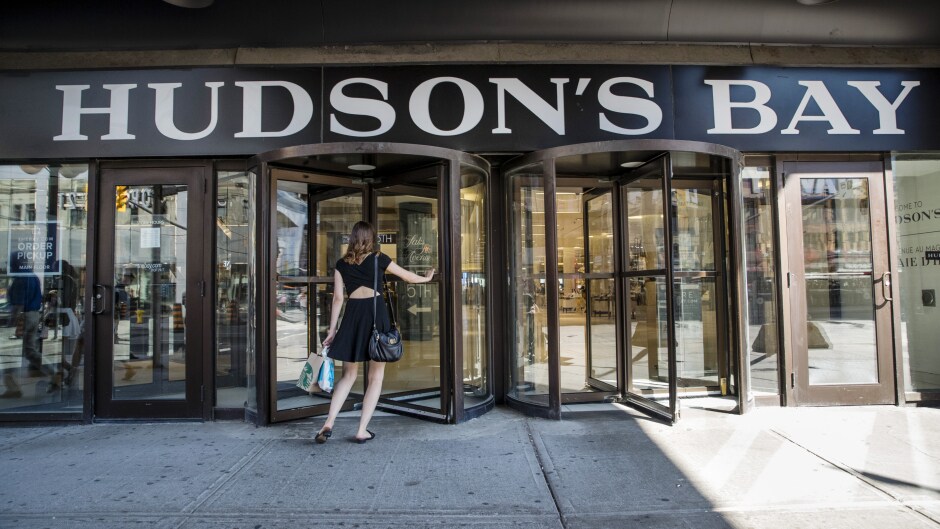The Hells Angels And The Law: Criminal Activities And Legal Battles

Table of Contents
A History of Criminal Activities Attributed to the Hells Angels
The Hells Angels' notoriety stems from a long history of alleged involvement in various criminal enterprises. Understanding these activities is crucial to understanding the context of the numerous Hells Angels legal battles.
Drug Trafficking
The Hells Angels have been implicated in large-scale drug trafficking operations worldwide. Their involvement spans the entire drug trade lifecycle, from manufacturing to distribution and sales.
- Examples: Methamphetamine production in clandestine labs, sophisticated cocaine distribution networks extending across international borders, and large-scale marijuana cultivation operations.
- Legal ramifications: These activities have resulted in significant prison sentences for numerous members, asset forfeiture proceedings seizing millions of dollars in assets, and international collaborations between law enforcement agencies to dismantle trafficking routes. Successful prosecutions often hinge on building strong cases based on witness testimony, wiretaps, and physical evidence.
Violence and Extortion
Violence is inextricably linked to the Hells Angels' image and operations. Acts of violence are often used to maintain control over territories, intimidate rivals, and enforce extortion schemes.
- Examples: Murders of rival gang members, assaults on individuals perceived as threats, and the use of intimidation tactics to extort money from businesses. Protection rackets are a common element, forcing businesses to pay for "protection" against violence or other forms of harm.
- Legal ramifications: These acts result in murder charges, assault convictions, and lengthy prison sentences. The RICO Act (Racketeer Influenced and Corrupt Organizations Act) is frequently used to prosecute these crimes as part of a larger pattern of criminal activity.
Money Laundering and Financial Crimes
The substantial profits generated from illegal activities necessitate sophisticated money laundering schemes to conceal the origins of the funds.
- Examples: The use of shell corporations to obscure ownership of assets, the use of offshore accounts in tax havens, and complex real estate transactions to disguise the flow of money.
- Legal ramifications: Money laundering convictions lead to significant prison sentences, and asset forfeiture laws allow authorities to seize ill-gotten gains, including properties, vehicles, and bank accounts. These financial investigations are often complex, requiring collaboration between law enforcement and financial institutions.
Legal Strategies Employed Against the Hells Angels
Prosecuting the Hells Angels presents unique challenges. Law enforcement agencies employ a range of sophisticated strategies to overcome these difficulties.
Infiltration and Surveillance
Undercover operations and long-term surveillance are crucial in gathering evidence against such a secretive organization.
- Examples: Wiretaps to intercept communications, infiltration by informants who gain the trust of club members, and meticulous surveillance to document criminal activities.
- Challenges: Maintaining the secrecy of undercover operations, gaining the trust of highly suspicious individuals, and mitigating the risk of corruption within law enforcement.
RICO Act Prosecutions
The RICO Act is a powerful tool used to target the Hells Angels as a criminal enterprise, rather than focusing on individual crimes.
- Examples: Targeting leadership figures to dismantle the organization's structure, disrupting chapters by seizing assets and disrupting operations, and prosecuting members for their roles in the overall criminal enterprise.
- Challenges: Proving the existence of a continuous criminal enterprise and establishing the individual involvement of specific members in racketeering activities requires substantial evidence.
International Cooperation
The Hells Angels' transnational activities necessitate international cooperation between law enforcement agencies.
- Examples: Sharing intelligence gathered in different jurisdictions, conducting joint operations across borders, and negotiating extradition agreements to bring members to justice.
- Challenges: Navigating differing legal systems, resolving jurisdictional issues, and overcoming language barriers.
Notable Legal Battles and Their Outcomes
Several high-profile Hells Angels legal battles have shaped the ongoing struggle against the organization. (This section would include specific cases, their outcomes, and links to relevant sources. Due to the dynamic nature of legal proceedings and the sensitivity of ongoing investigations, this section requires current, verified information and cannot be fully populated here).
The Challenges of Prosecuting the Hells Angels
Successfully prosecuting the Hells Angels faces significant obstacles:
- Secrecy and Code of Silence: The strong code of silence within the club makes it difficult to obtain witness testimony.
- Intimidation and Retaliation: Witness intimidation and the risk of retaliation against those who cooperate with law enforcement pose significant challenges.
- Resource Intensive Investigations: Building strong cases requires extensive resources, including skilled investigators, forensic experts, and significant financial investment.
Conclusion
The ongoing conflict between the Hells Angels and the law highlights the complexities of combating organized crime. Successfully prosecuting the club requires sophisticated legal strategies, international cooperation, and persistent investigative work to overcome the significant challenges posed by their secretive nature and capacity for violence. Understanding the criminal activities and the various Hells Angels legal battles provides crucial insight into the fight against powerful criminal organizations. Further research into specific Hells Angels legal cases is encouraged to gain a comprehensive understanding of this ongoing struggle for justice.

Featured Posts
-
 M62 Westbound Road Closure Resurfacing Between Manchester And Warrington
May 25, 2025
M62 Westbound Road Closure Resurfacing Between Manchester And Warrington
May 25, 2025 -
 B C Billionaire Targets Hudsons Bay Leases For Shopping Mall Expansion
May 25, 2025
B C Billionaire Targets Hudsons Bay Leases For Shopping Mall Expansion
May 25, 2025 -
 Moskva Nagrazhdenie Pobediteley 47 Go Mmkf
May 25, 2025
Moskva Nagrazhdenie Pobediteley 47 Go Mmkf
May 25, 2025 -
 Police Helicopter Pursuit Unbelievable Refueling Stop At 90mph
May 25, 2025
Police Helicopter Pursuit Unbelievable Refueling Stop At 90mph
May 25, 2025 -
 Kerings Sales Decline Demnas First Gucci Collection Unveiled This September
May 25, 2025
Kerings Sales Decline Demnas First Gucci Collection Unveiled This September
May 25, 2025
Latest Posts
-
 Jadwal Lengkap Moto Gp Inggris Di Silverstone Update Klasemen And Posisi Marquez
May 26, 2025
Jadwal Lengkap Moto Gp Inggris Di Silverstone Update Klasemen And Posisi Marquez
May 26, 2025 -
 Jadwal Moto Gp Inggris 2024 Silverstone Klasemen Terbaru And Prediksi Marquez
May 26, 2025
Jadwal Moto Gp Inggris 2024 Silverstone Klasemen Terbaru And Prediksi Marquez
May 26, 2025 -
 Jangan Lewatkan Jadwal Lengkap Moto Gp Argentina 2025 Termasuk Sprint Race
May 26, 2025
Jangan Lewatkan Jadwal Lengkap Moto Gp Argentina 2025 Termasuk Sprint Race
May 26, 2025 -
 Jadwal Moto Gp Argentina 2025 Catat Waktu Sprint Race Minggu Pagi
May 26, 2025
Jadwal Moto Gp Argentina 2025 Catat Waktu Sprint Race Minggu Pagi
May 26, 2025 -
 Saksikan Aksi Sengit Jadwal Moto Gp Argentina 2025 Sprint Race Minggu Subuh
May 26, 2025
Saksikan Aksi Sengit Jadwal Moto Gp Argentina 2025 Sprint Race Minggu Subuh
May 26, 2025
